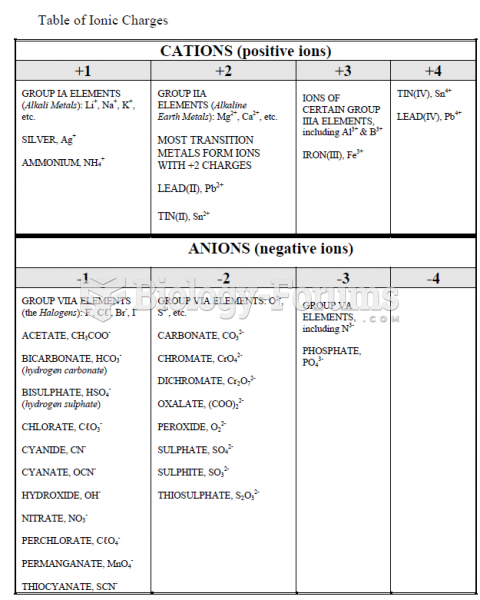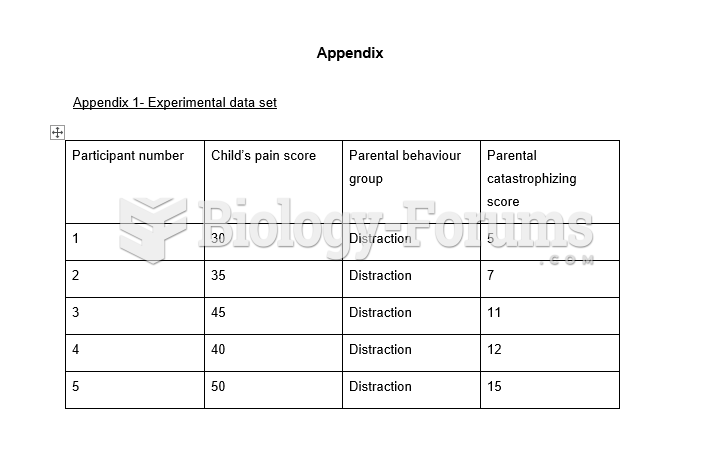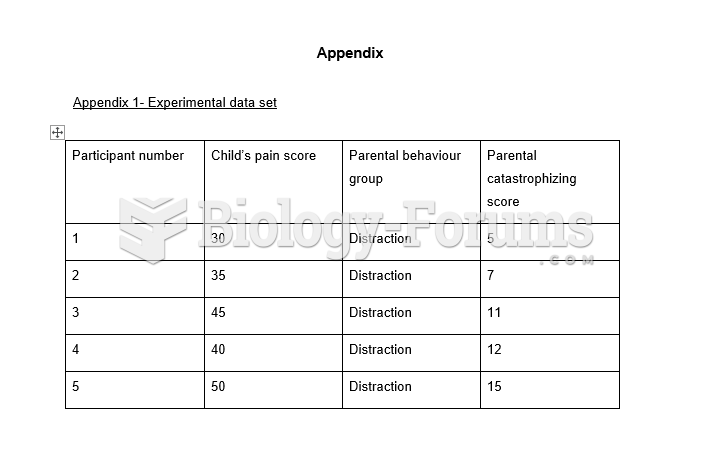|
|
|
Nearly 31 million adults in America have a total cholesterol level that is more than 240 mg per dL.
Although the Roman numeral for the number 4 has always been taught to have been "IV," according to historians, the ancient Romans probably used "IIII" most of the time. This is partially backed up by the fact that early grandfather clocks displayed IIII for the number 4 instead of IV. Early clockmakers apparently thought that the IIII balanced out the VIII (used for the number 8) on the clock face and that it just looked better.
Egg cells are about the size of a grain of sand. They are formed inside of a female's ovaries before she is even born.
Ether was used widely for surgeries but became less popular because of its flammability and its tendency to cause vomiting. In England, it was quickly replaced by chloroform, but this agent caused many deaths and lost popularity.
When blood is exposed to air, it clots. Heparin allows the blood to come in direct contact with air without clotting.







